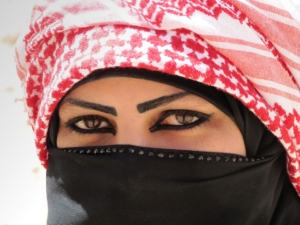UN Women’s Oasis Program tackles gendered poverty in Jordan

In 2016, U.N. Women reported that the majority of women living in Jordan were unemployed, with only 19% of Jordanian women and female Syrian refugees living in Jordan participating in the labor market. The U.N. Women’s Oasis Program has helped more than 30,000 Jordanian women and female Syrian refugees develop skills and become financially independent by working in Oasis centers — overcoming the multitude of barriers to employment that exist for women in Jordan.
Gendered Poverty in Jordan
Providing security and rehabilitation for 700,000 Syrian refugees, Jordan has become a safe haven for women and girls fleeing the violence and destruction that has plagued Syria since 2011. However, without the support of husbands, sons, or brothers, many of them are now experiencing the effects of gendered poverty in Jordan. In 2022, the World Bank found that 14.7% of Jordanian women are employed. One can accredit this low figure to obstacles such as a lack of job opportunities and limited access to higher education and skill development.
Security and Opportunity: The UN Women’s Oasis Program
The U.N. Women’s Oasis program is a humanitarian mission with 22 centers in Jordan, all of which are aimed at combating gendered poverty by empowering Syrian refugees and vulnerable Jordanian women. Originally established to aid women and young girls in refugee camps, such as Za’atari and Azraq, the program expanded its goals by incorporating cash-for-work schemes and training women in labor markets such as home maintenance and childcare.
Not only does the U.N. Women’s Oasis program help women become financially independent and break down structures of gendered poverty, but it also supports and protects women against gender-based violence. This is accomplished by creating accessible training programs where women can earn money and enter the labor market, supporting themselves and their children without being stuck in dangerous domestic situations.
A Brighter Future for Jordan
Since 2012, the U.N. Women’s Oasis program has had an array of positive effects on Jordanian women and Syrian refugees living in Jordan who seek to improve their financial position. According to a study carried out by the program, 70% of the participants experienced a decrease in domestic violence and 78% felt that they could take on more decision-making responsibility in the household. The Oasis centers also offer a safe, empowering space for women to interact and build social relationships, which 98% of women in the program feel improves their self-esteem, reducing loneliness and depression.
Women in Jordan also cited childcare and housework responsibilities as limiting their ability to access employment. The Oasis centers are working to mitigate this by including nurseries and childcare areas in their facilities. Allowing women to bring their children to work also empowers their children to develop skills and continue their education, further contributing to breaking down gendered poverty cycles.
Conclusion
The U.N. Women’s Oasis program in Jordan equips women with valuable skills that not only motivate them to start their own microbusinesses and further their careers once leaving the centers but also empower them through workshops built around raising awareness on human rights and gender-based violence. With increasing numbers of women able to access skill development services and safe spaces to network, the gendered poverty in Jordan can, with hard work and determination, perish.
– Zara Brown
Photo: Pixabay
